Legal requirements for restaurants
Before opening the doors to a new restaurant venture, there are many things you could or should do to get your business ready for launch — there are also some legal requirement for restaurants that you absolutely have to abide by to be able to operate in the food service industry.
The minimum legal requirements for restaurants
Getting all the permits and licenses you need isn’t an easy task, and it can require a considerable amount of patience not just to complete, but to await approval of your documents. It’s useful to break the process down into more manageable areas. These are some the pieces of the puzzle you should focus on first.*
Business license
Permission from your local city or county to operate within the local jurisdiction.
Food service license
Required whenever food is served to the public for commercial purposes.
Liquor license
Not applicable to every business, but essential if you want to serve alcohol.
Food handlers permit
Proof of completion of a state-approved course covering sanitation, storage, and handling.
Employer Identification Number (EIN)
Available from the IRS and used when paying employees and filing business tax returns.
Some states will allow you to proceed with operations while the licenses and permits are being granted, so check your local regulations. But even if that is the case, don’t use that as a reason to delay getting your submissions in. The sooner you start to compile all the documents you need, the less likely it is that your business opening will be delayed due to an administrative blip.
People requirements
As well as ensuring each and every one of your team has the required food handlers card and has completed a recent course, there are various responsibilities you have to your team.
You must pay whichever is higher — the state or federal minimum wage in your area. Sometimes, tips need to be factored in too.
If any of your employees will be working over 40 hours per week, they need to be paid time and a half during those extra hours.
It’s up to you to determine the work eligibility of your team. Check that everyone holds up-to-date visas and valid work permits.
Building requirements
The premises from which you’re running your restaurant is subject to various permits, both inside and out.
Certificate of occupancy
This ensures that the place you’ve set up is safe to operate in following inspection by your local zoning department. A building health permit may also be required in some instances.
Sign permit
Available from the city government, there will be regulations around size, brightness, and location that you need to follow before putting up your signs.
Music and live entertainment licenses
Keeping you the on right side of Performing Rights Organizations. Some streaming services offer business accounts that cover the required PRO fees.
Valet parking permit
If you‘re planning on offering valet parking to your guests, a detailed plan of processes and financial arrangements needs to be drawn up and submitted.
Depending on the type of business you operate and the city you’re in, there may be other requirements to consider too, such as a dumpster permit or pool table permit. Consult with your local city hall or chamber of commerce which should have all the information you need readily available.
Financial requirements
As well as getting (and keeping) your accounts in order, there are a few extra areas you need to consider.
Sometimes known as a ”sales tax license,” a Seller’s Permit identifies you as a business that collects sales tax on behalf of the state.
A Resale Permit allows you to purchase specific items without tax, assuming you plan to use them to create products to sell to customers.
Property insurance, general liability insurance, and workers compensation insurance to cover you if the unexpected happens.
Few would argue that this is the most enjoyable part of setting up a new restaurant, but it’s a vital process, and one that can save a lot of future aggravation if you get it right from the outset.
* The information included here is not exhaustive and should not be used in place of your own research into required permits and licenses. Visit sba.gov for more information.
Rewards Network® does not provide tax, legal, or accounting advice. This material has been prepared for informational purposes only, and is not intended to provide, and should not be relied on for tax, legal, or accounting advice. You should consult your own tax, legal, and accounting advisors before engaging in any transaction.





